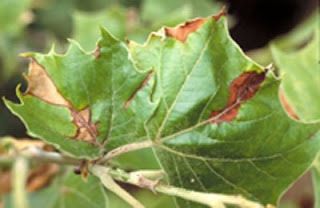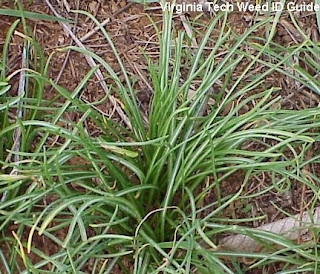
Gypsy moth larvae. Early instars shortly after hatching from egg mass.

Gypsy moth larvae starting to hatch from egg masses.

Gypsy moth egg masses. Gypsy moth photos are provided by Pennsylvania Department of Conservation and Natural Resources - Forestry Archive, , Bugwood.org.

European pine sawfly infestation. Photo by John A. Weidhass, Virginia Polytechnic Institute and State University, Bugwood.org.

European pine sawfly eggs. Photo by A. Steven Munson, USDA Forest Service, Bugwood.org.

Boxwood psyllid nymph. Photo by Nancy Gregory, Plant Diagnostician, University of Delaware 2007.

Cupped leaf with "lerps" caused by boxwood psyllid feeding. Photo by Brian Kunkel, Ornamentals IPM Specialist, University of Delaware 2008.

Number of lace bug nymphs clustered close together. Photo by Brian Kunkel, Ornamentals IPM Specialist, University of Delaware 2007.



Azalea lace bug nymph. Photo By Tracey Wooten, Horticulture Extension Agent - Sussex County, University of Delaware.












 Azalea lace bug nymph. Photo By Tracey Wooten, Horticulture Extension Agent - Sussex County, University of Delaware.
Azalea lace bug nymph. Photo By Tracey Wooten, Horticulture Extension Agent - Sussex County, University of Delaware.


























